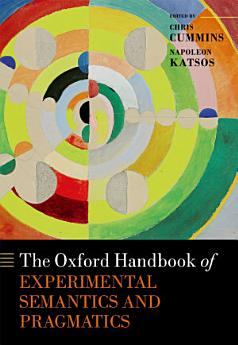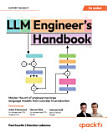The Oxford Handbook of Experimental Semantics and Pragmatics
Chris Cummins · Napoleon Katsos
Mar 2019 · Oxford University Press
Ebook
720
Pages
family_home
Eligible
info
reportRatings and reviews aren’t verified Learn More
About this ebook
This handbook is the first to explore the growing field of experimental semantics and pragmatics. In the past 20 years, experimental data has become a major source of evidence for building theories of language meaning and use, encompassing a wide range of topics and methods. Following an introduction from the editors, the chapters in this volume offer an up-to-date account of research in the field spanning 31 different topics, including scalar implicatures, presuppositions, counterfactuals, quantification, metaphor, prosody, and politeness, as well as exploring how and why a particular experimental method is suitable for addressing a given theoretical debate. The volume's forward-looking approach also seeks to actively identify questions and methods that could be fruitfully combined in future experimental research. Written in a clear and accessible style, this handbook will appeal to students and scholars from advanced undergraduate level upwards in a range of fields, including semantics and pragmatics, philosophy of language, psycholinguistics, computational linguistics, cognitive science, and neuroscience.
About the author
Chris Cummins is a Lecturer at the University of Edinburgh. He previously worked at Bielefeld University, having received his PhD from the University of Cambridge. His research interests include the pragmatic interpretation of quantity expressions, and how this bears upon reasoning and decision-making; he has also published on the topics of presupposition, speech acts and metaphor. He is the author of Constraints on Numerical Expressions (OUP 2015). Napoleon Katsos is a Reader in Experimental Pragmatics at the University of Cambridge. He was among the first generation of PhD researchers to be trained in experimental pragmatics and took part in related networks, such as Euro-XPrag, XPrag-UK, and XPrag-De. He is interested in how we learn, process, and use the meaning of words and sentences, with emphasis on quantification and implicature. He draws relevant evidence from linguistic theory and experimental psychology, including sentence processing and typical or atypical language acquisition by monolingual or bilingual children.
Rate this ebook
Tell us what you think.
Reading information
Smartphones and tablets
Install the Google Play Books app for Android and iPad/iPhone. It syncs automatically with your account and allows you to read online or offline wherever you are.
Laptops and computers
You can listen to audiobooks purchased on Google Play using your computer's web browser.
eReaders and other devices
To read on e-ink devices like Kobo eReaders, you'll need to download a file and transfer it to your device. Follow the detailed Help Center instructions to transfer the files to supported eReaders.





